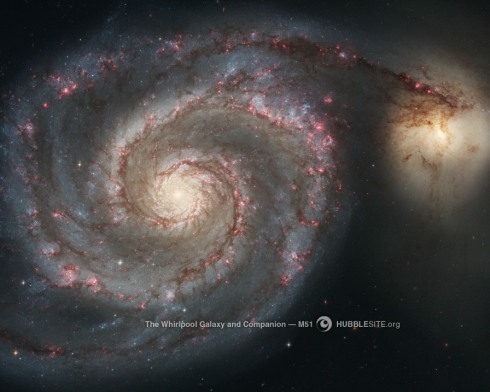Forgive me for this ramble. I know it can be tiresome to read about this kind of thing, but I am working through it, and that’s the sort of thing this blog exists for. Some of this, at least, is relevant to people in general.
I’ve seen a lot of relationships over the years. I’ve seen the good, the bad, the dull, and the disastrous. I’ve watched possibly surmountable problems collapse into avalanches, I’ve watched people drift apart and give up, and I’ve watched people make bad, bad choices in their desperation to be loved.
Our society tells a lot of lies.
There’s the lie, ever-relevant to people like me, that if you aren’t in a romantic relationship, if you aren’t loved by someone in the “eros” sense of the word, then there is something wrong with you. As a woman who has been single for a long time, I can bear witness that many women treat me as a broken thing that needs fixing. If I could say just one thing to them, and really have them hear it, it would be this: I am a whole person as I am. Don’t treat me as if I am deficient or incomplete.
There’s the lie that what Lewis, in the Screwtape Letters, calls “the storm of emotion” attendant to falling in love IS actually love rather than just a stage of love. There’s the accompanying lie that when things get hard, that love is over and it’s time to move on. I’ve seen a lot of lonely people who buy into this one. They’re lonely because they move from relationship to relationship seeking a permanence that does not exist.
A related lie is the idea that love is something that happens TO us, and that it is irresistible. Attraction may be involuntary, but whether or not we feed that attraction and act on it, is our choice. I have a hard time sympathizing with those who use this excuse to justify loving foolishly, or committing adultery. Especially adultery. Loving foolishly happens, and while I may be frustrated by patterns, such as someone who constantly pursues abusive relationships because they are attracted to a “type,” I can empathize with that pain. But justifying injuring another person by cheating on them because you buy into some concept of “irresistible love” only angers me.
There are lies about sex that range from misrepresentations of normalcy, to downplaying its significance in our emotional and spiritual lives. This causes no end of harm, but it’s harm we rarely talk about because few want to be labeled as “puritanical” by pointing out the damage caused by a culture that desperately wants sex to be “no big deal” while simultaneously idolizing romantic love with the lies mentioned above.
For the most part, I know where I stand on all of these. I also know where I stand in terms of what I will and won’t accept from a partner, and what I am looking for.
- I won’t change who I am, or pretend to be someone I am not, in order to find a mate – It seems to me that this would be self-defeating, anyway, because I’d only end up attracting a partner who wants whatever I am pretending to be instead of me.
- I need someone who shares my faith – I’ve seen cross-faith partnerships work, but I know how hard they can be. I also know myself well enough to know I need that spiritual support. I also need them to share at least most of my moral outlook.
- I need an intellectual equal – I’ve seen the consequences when there’s a disparity. Either one partner ends up parenting the other, or they constantly frustrate each other because they are incapable of being on the same page. By the same token, I need someone who is at least close to my maturity level. I need to be able to trust them to be an adult when necessary, but I also need them not to judge me when I’m being kid-like. Sometimes a woman wants to play video games and eat cookies for dinner, and sometimes she wants to run around the park with her arms spread out like an airplane, or cosplay for a Star Wars movie, and the last thing she wants is a partner who looks at her like she’s insane or who gets frustrated at her for doing these things.
- I need someone I can trust – Loyalty means almost everything to me. I trust slowly, if ever, and I give my loyalty with care. Because when someone has my loyalty, they have it. I need the same from my partner. I don’t think I’m the sort who can forgive infidelity. I also need someone who won’t back out of a commitment, but who will work with me to solve the problems that will inevitably come.
- I need someone who knows how to communicate – This is, unfortunately, a little nebulous. But I also know it is important. The ability to listen, and to articulate, and to work through problems are vital in any lasting relationship, including friendships and family ties.
I won’t accept abuse. I hate being manipulated, and I have enough self-worth not to take crap from people. This is an advantage I have, not a strength, a gift, not an achievement. Too many people are riddled with insecurities, body dysphoria, and feelings of low self-worth that make them think they aren’t worthy of love, or not worthy of being treated well by those they love. I’ve seen women, especially, but men, too, “settle” for what they think they can get in an effort not to be alone. It’s depressing to see, and it always seems to end with one, or both, partners being badly hurt, and that’s not even considering children being involved.
I want none of that. I don’t want to settle, and I don’t want anyone to settle for me. I would rather be single my whole life than settle for someone or have them settle for me.
But. And here is where things start to go sideways. We are fallen humanity. I am by no means perfect, and neither is anyone else. So any partner I find will have their own imperfections, just as I have mine, and there will be strife and pain even in the best of terrestrial circumstances.
Lovely.
My best friend recently said to me that I need to have lines, and I need to know where those lines are. The above lines are good, so far as they go, but when it comes to specifics, some of them get harder to evaluate, especially when I know I am emotionally compromised.
Some answers come easily. If my significant other cheats on me, we’re done. If he starts behaving in a manner that’s abusive, we’re done. Both are things I deem highly unlikely, but I’m too wary of the world to put anything out of the realm of possibility. But for the other lines… it’s harder. For one thing, the future is unknowable, people make mistakes that are either patterns, or mistakes that they correct. Some patterns I think I can live with, while others I can’t, but how can one know if a mistake will be corrected or whether or not it is a warning sign?
I have watched so many friends ignore warning signs.
In evaluating my friends’ significant others, I look for patterns. Part of this is just time. I remind myself constantly to take my time. I am well aware, however, that I am not as hard on my own significant other as I would be on those of my friends. I’m biased in his favor, and I know that’s dangerous. But at the same time, it seems right. I love him, and loving someone does mean being biased in their favor. I also know that I cannot expect him to be perfect any more than I am.
So what is and isn’t acceptable? Am I seeing what is truly there? Are the qualities in him that I find wonderful enough? Are his failings things I can accept if they never change? Are there things I see now, that aren’t problems, that will become problems for me eventually? And how do all of these questions play out from his side when applied to me? My communication with my s.o. is good, as far as I can tell, and so I know he worries about different aspects of our relationship than I do more often than not.
I begin to understand more and more that, eventually, it will just come down to a choice. And once that choice is made, one way or another, I will have to accept the consequences, good and bad. At present, I worry, but I also pray, and I am trying to listen to those around me, both my s.o., my family, and my friends.




